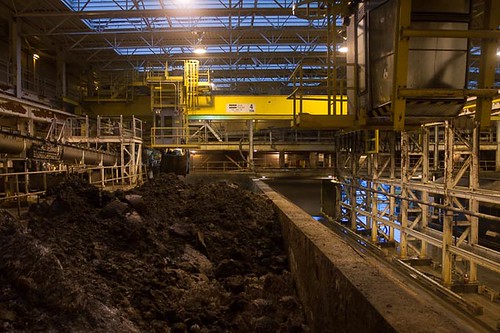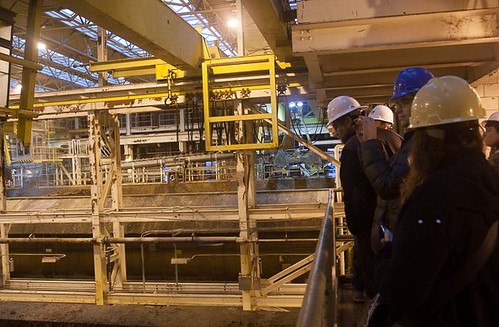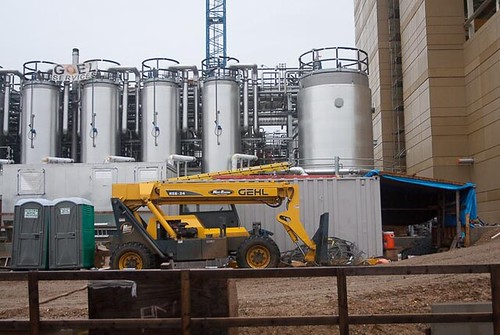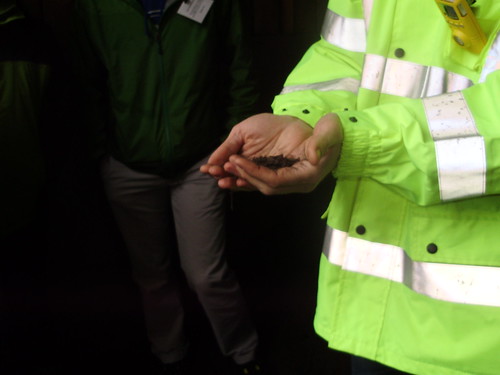Class Report
Recyling D.C.’s Nutrients Back to Its Soils

If you poop in D.C., it ends up here in this bunker. Even if you’re Obama! This isn’t raw excrement: It’s been treated and is ready for agricultural use.
Teacher: Bill Brower, manager of Biosolids Operations at DC Water. Quote: “I am damn happy that my title isn’t Manager of Sludge.”
Documentarians: Dave Ramos and Holly J. Morris
Location: Blue Plains Advanced Wastewater Treatment Plant
Class Date: Jan. 11, 2014
The stuff we flush down our toilets or garbage disposals — sewage sludge — has traditionally been seen as a burden by the water treatment world. But wastewater from the District’s homes and businesses contains (literally) tons of nutrients and organic material — just what plants need to grow. On a tour of the Blue Plains Advanced Wastewater Treatment Plant, KCDCers learned how DC Water recycles sewage into delicious (to plants) food.
First, we learned what biosolids are: nutrient-rich materials reclaimed from sewage. Plants love growing in biosolids, which are used on farms, in forests, and in areas where the topsoil has been destroyed (such as old mining sites). For considerably more detail, see this EPA FAQ. And this page from DC Water’s site.
D.C. pays to have its biosolids trucked out to farms in Virginia and Maryland. Blue Plains produces Class B biosolids, which aren’t completely free of pathogens. Some of D.C.’s biosolids go to a composting facility in Pennsylvania, where they’re turned into Class A material. That’s OK to use anywhere — playgrounds, community gardens, etc.
On with the tour!

When wastewater first arrives at the plant, it contains large debris like plastic bags and leaves. Metal screens remove these materials. Bill pointed out a condom wrapper and some flushable wipes. “Don’t use those,” he said, of the wipes.

The tour group, armed with hard hats, admires the biosolids in the holding bunker (pictured more glamourously at the top of the post). These biosolids await the trucks that will haul them away, primarily to farms.

When this new thermal hydrolysis plant comes online, DC Water will be able to make Class A biosolids on-site. Even better: The plant will produce methane for conversion into electricity, providing one-third of the power that Blue Plains consumes. When it opens later this year, it will be THE BIGGEST THERMAL HYDROLYSIS PLANT ON THE PLANET.

Behold, finished Class A biosolids, free to DC Water employees and anyone who asks nicely. Bill gave each student a bag to take home. Seriously, if you want some, we’ll put you in touch … email contact@knowledgecommonsdc.org.
